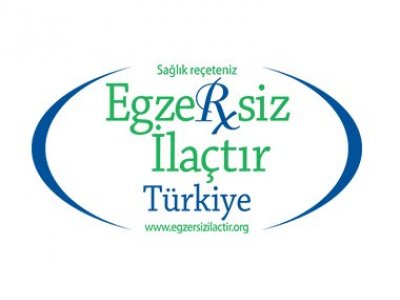Non-communicable diseases are the biggest threat to public health in Turkey and around the world. Common, preventable risk factors underlie non-communicable diseases. These factors include tobacco addiction, physical inactivity, unhealthy diet and harmful alcohol use. Among the effects of these behavioral risk factors and other metabolic/physiological causes on the global NCD epidemic are overweight and obesity. Controlling and preventing obesity is a priority for the Ministry of Health and other relevant public institutions in Turkey. As a matter of fact, the World Health Organization (WHO) approved the Chronic Diseases Action Plan and the "WHO European Ministerial Conference on Combating Obesity" was held in Istanbul on 15-17 November 2006 and the "European Document on Combating Obesity" was signed. On July 4-5, 2013, the Vienna Declaration was signed, in which Member States concluded that the growing impact of chronic non-communicable diseases on 21st century development can only be tackled through the broad and effective involvement of all relevant sectors and the efforts of the government and society as a whole, and by placing emphasis on health in all policies.
In Turkey, chronic diseases are the leading cause of death and burden of disease. Studies show that the prevalence of overweight and obesity is increasing in our country as well as in the world and that obesity has started to affect especially our children and young people. The prevalence of obesity in children aged 0-5 years was found to be 8.5% and overweight 17.9%. The prevalence of obesity is 30.3% and the prevalence of mild obesity is 34.6% in all adults aged 19 years and over in Turkey. The main goal of national health policies is to achieve a healthy society consisting of healthy individuals. In this context, the Ministry of Health launched the "Turkey Healthy Nutrition and Active Life Program" in 2010.
In the scope of the movement to control and prevent obesity, increasing the physical activity levels of citizens is an important success parameter. Studies show that on average 3.2 million people lose their lives every year due to physical inactivity. This shows that physical inactivity takes almost as many lives each year as traffic accidents. In Turkey, 72% of the population is physically inactive, while regular exercisers make up only 3.5% of the total population.
With the current situation, it will be possible to achieve success in the fight against obesity within the scope of non-communicable chronic diseases only as a result of joint, coordinated and determined efforts of all stakeholders related to this issue. With the awareness of the responsibility of non-governmental organizations within the scope of national health policies in this struggle, the Promoting Active Life Project was initiated with the protocol signed between the Health Promotion Health Policy Association, the Ministry of Health and Yıldırım Beyazıt University on November 14, 2013. The Promoting Active Life Project aims to reduce physical inactivity in Turkey by raising awareness of the importance of physical activity among two important target groups (family physicians and teachers) who are in one-to-one contact with the public.
One of the most effective ways to promote physical activity in Turkey is through the family medicine system. Each of 77 million citizens is registered with a family physician. Reducing the prevalence of obesity within the scope of preventive medicine is within the areas of responsibility of family physicians. For this reason, the Active Life Promotion Project is important in terms of raising the awareness of family physicians on the importance of physical activity and its role in the prevention of diseases, and their direct and effective touch on the society.
In Turkey, 12 years of primary and secondary education before university is compulsory for every citizen. For this reason, another important group that is in active contact with the whole society, especially at an early age, is teachers. Increasing the level of awareness of all teachers, primarily physical education teachers, at the level of the Ministry of National Education will be an important step in raising the awareness of our children and their families about obesity and non-communicable diseases in the short term, and in the medium and long term, in making the society more physically active.
The Promotion of Active Life Project has been strategically prepared and implemented in parallel with the "Turkey Healthy Nutrition and Active Life Program" launched by the Turkish Ministry of Health in 2010 and updated in 2013 for 2014-2017.
- Molarius A. Seidel JC, Sans S, Toumilehto J, Kuulasmaa K. Varying sensitivity of waist action levels to identify subjects with overweight or obesity in 19 populations of the WHO MONICA Project. J Clin Epidemiol. 52: 1213-1224, 1999.
- The challenge of obesity in the WHO European Region and the strategies for response, Ed. Francesco Branca, Haik Nikogosian and Tim Lobstein, WHO, Denmark, 2007.
- Inequalities in young People's Health, HBSC International Report from the 2005/2006 survey. WHO Regional Office for Europe, Denmark, 2008. https://iris.who.int/bitstream/handle/10665/326503/9789289071956-eng.pdf (Access: 12.07.2013).
- Satman İ, Yılmaz T, Şengül A, Salman S, Salman F et al. Population-based study of diabetes and risk characteristics in Turkey. Diabetes Care; 25(9):1551-1556, 2002.+




